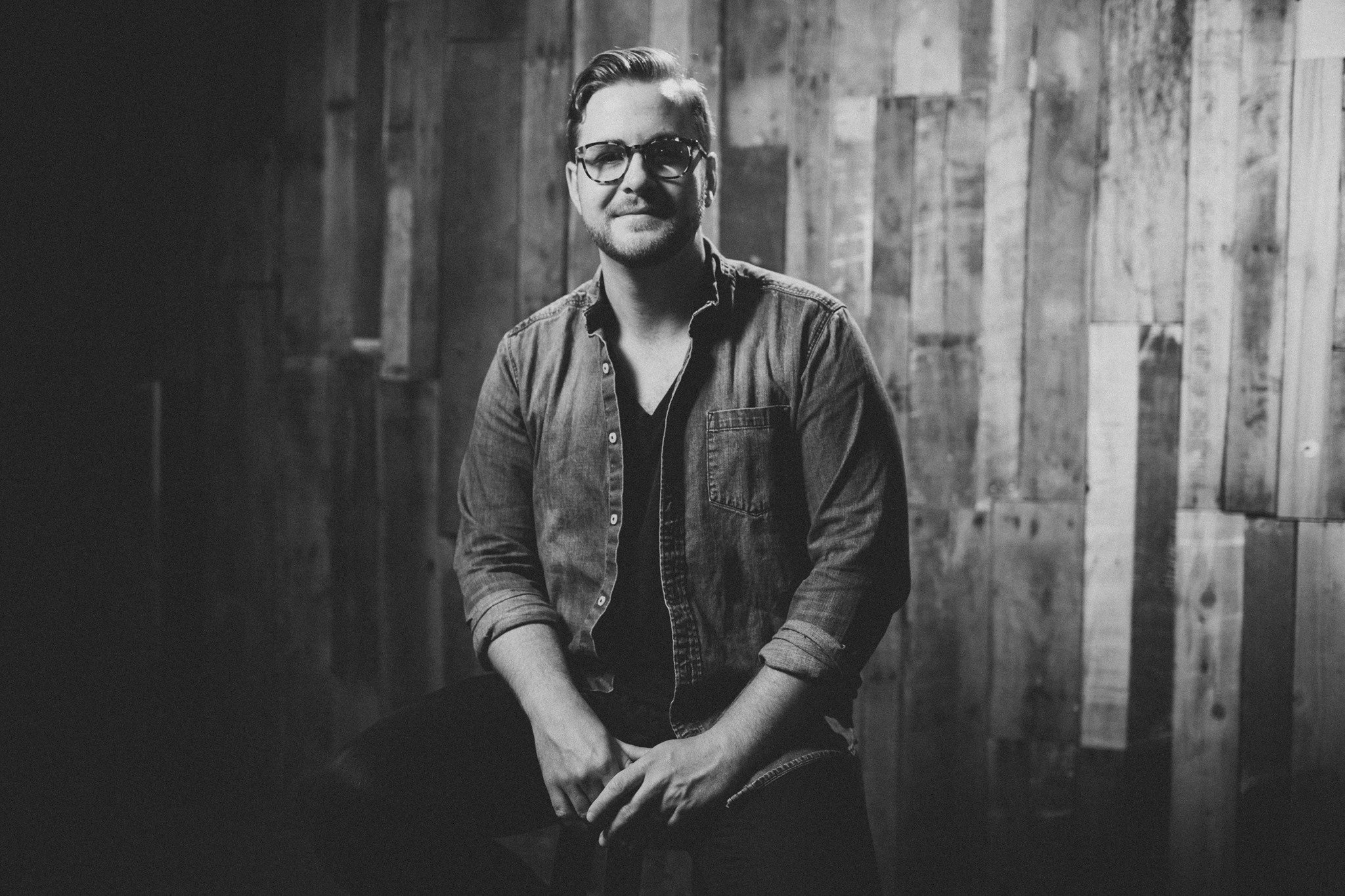To be a songwriter, you need a bit of talent. There’s no doubt about that.
But, you should never worry about not having enough talent.
Writing a good song mostly depends on skill — and skill is something that can be learned and practiced.
That’s why you’ll often hear me stress the need to write a lot. It’s really the only way you’ll get better.
This story from James Clear’s book Atomic Habits illustrates this perfectly:
On the first day of class, Jerry Uelsmann, a professor at the University of Florida, divided his film photography students into two groups.
Everyone on the left side of the classroom, he explained, would be in the “quantity” group. They would be graded solely on the amount of work they produced.
On the final day of class, he would tally the number of photos submitted by each student. One hundred photos would rate an A, ninety photos a B, eighty photos a C, and so on.
Meanwhile, everyone on the right side of the room would be in the “quality” group.
They would be graded only on the excellence of their work. They would only need to produce one photo during the semester, but to get an A, it had to be a nearly perfect image.
At the end of the term, he was surprised to find that all the best photos were produced by the quantity group.
During the semester, these students were busy taking photos, experimenting with composition and lighting, testing out various methods in the darkroom, and learning from their mistakes. In the process of creating hundreds of photos, they honed their skills.
Meanwhile, the quality group sat around speculating about perfection. In the end, they had little to show for their efforts other than unverified theories and one mediocre photo.
Even though this story is about photography, the conclusion holds for songwriting (or really, any creative endeavor.)
In order to hone your skills, you must make writing a priority.
And use these tips when you’re not sure if your songs are hitting the mark.
16 Songwriting Tips for Writing Better Songs
These will help whether you’re a beginner at songwriting, or more experienced and hoping to break out of your usual writing routine.
1. Write what you know.
Tap into your personal experience. This could mean something you’ve experienced directly or something you’ve observed.
Don’t worry about revealing too much. You don’t need to be literal. Your experiences can be based on the simplest things. Use something you hear or see as inspiration for building an entirely different scenario.
What are your hobbies or some of the things you love? Can you write about your morning coffee? Jumping out of an airplane? It’s all fair game!
Black Coffee In Bed — Squeeze
2. Channel an artist.
Do you dream of having a particular artist record one of your songs?
It’s entirely possible. But don’t write just anything and hope—write with purpose. Create a song you can imagine them singing. Choose a theme they like and write in their style.
When you write with a particular artist in mind, you can definitely pitch your song to them (but you don’t have to.) You might not have the skills or connections to make this work in the beginning, but that doesn’t mean you can’t aspire to it.
In this case, practice definitely makes your songs more pitchable!
3. Don’t wait for inspiration to strike.
Creativity doesn’t have an “off” switch, so be ready to record your ideas. Keep a phone or tablet with you at all times. You never know when inspiration will strike.
All professional songwriters know you can’t wait until you feel inspired, or you’ll never write. Instead, set up your writing space or studio and sit down at the same time every day. Soon, you’ll find that inspiration shows up right on time — exactly when you do!
Show up, show up, show up, and after a while the muse shows up, too. If she doesn’t show up invited, eventually she just shows up. — Isabel Allende
4. Tell your story.
Think about your own life. What are some of your favorite stories to tell? What about your family and friends? These could be heartfelt or hilarious, outrageous or thought-provoking.
Revisiting history can reveal a treasure chest full of inspiration. (Don’t forget to write them down!)
We all share so many of the same kinds of experiences, even though some of the details are different. Tap into those relatable stories—they’ll resonate with your listeners.
Ed Sheeran — Castle On the Hill
5. Mix it up.
If you always play the guitar or piano, for instance, try grabbing an instrument you don’t play as well and noodle for a bit. If you’re feeling really brave, step away from your instruments completely.
Maybe you’ll hear a melody in your head or be inspired by something unusual like a car horn or kids playing. Listen closely to what’s going on around you—that conversation you hear in your local coffee shop may be just the inspiration you need.
Record all those ideas. They count, especially when you feel like you’re getting a little stale. When you get back to your studio, pick whatever hits you, and follow wherever those ideas lead you.
6. Set up constraints.
Creativity thrives within constraints—think about it. Sometimes having to make too many decisions when you’re staring at a blank page can seem overwhelming.
Make things easier on yourself by creating limits.Try:
- Using as few words as possible
- Limiting yourself to 2 or 3 chords
- Challenging yourself with 8 chords
- Setting a timer and writing as fast as you can
These are just a few ideas—I’m sure you’ll think of others. The point is, don’t be afraid to tie one hand behind your back (metaphorically speaking.)
7. Be authentic.
Don’t be afraid to reveal a little bit of your heart and soul. Listeners connect to shared emotion, as well as stories and experiences.
That doesn’t mean you have to share your innermost thoughts with every song you write—that would be exhausting for your listeners! By all means, do that occasionally, but be sure you’re balancing the bad with the good, the heartbreak with the fun times.
Instead of going to confession, try to sprinkle some grain of truth into every song, and give your audience something they connect with.
Last Train Home — John Mayer
8. Remove constraints.
On the flip side, you may want to play around outside your usual (maybe unconscious) constraints.
Look outside your genre. When was the last time you were inspired by a classical film score? An old folk tune? A heavy metal anthem?
It’s all fair game.
I’m not saying you should always push the boundaries of your genre, but try it sometime. You could also take the good ideas from other areas and adapt them in your own writing.
9. Compose a memorable melody.

Melodies are always going to be one of the most “sticky” parts of a song.
There are thousands that use the same chords—your melody is what makes your song unique.
Write melodies people can easily remember and repeat. If listeners can’t help but sing along, you’ve done your job.
This is known as the nursery rhyme test: make your melody as simple and memorable as a nursery rhyme.
Experiment using all the tools at your disposal. Time spent on crafting a strong melody is never wasted.
Call Me Maybe — Carly Rae Jepsen
10. Write catchy lyrics.
Lyric writing can be tricky. Approach lyrics with a process, but allow yourself to be flexible and never stay married to the first things you write. Lyrics will often change, breathe, and grow with your song.
Keep your lyrics conversational. In general, if a word or phrase is awkward to read aloud or use in real-life discussions, it’s probably going to be confusing in your song.
As with everything, experiment. Don’t be tempted to fall into patterns that become habits.
Look to your favorite songs and writers for inspiration. Do they use a lot of words or only a few? How do they use repetition? When do they break conventions? Be strict about rhyme in one song, but play more loosely with another.
11. Craft a memorable rhythm.
Few things make a song stand out like an iconic or even defining groove. After all, what would We Will Rock You be without its immediately identifiable “stomp-stomp-clap, stomp-stomp-clap” rhythm?
A signature beat or cool bass run can be incredibly powerful hooks. So don’t be afraid to start with a rhythm foundation and build your song around that. Strong grooves and beats carry emotion and energy and are memorable hooks in their own right.
Jon Batiste — Freedom
12. Use all your senses.
Few things engage us like the ability to see, hear, touch, taste, and smell. This is how we experience life!
Songwriters often lean on descriptions of seeing and hearing, but forget touch, taste, and smell. You can write a song that stands out just by involving more senses. The feel of sunshine on your face, the sour taste of lemonade, the smell of cologne.
Your goal is to paint a picture with your words so listeners feel like they’re right there. Don’t be afraid to involve all five senses.
As always, there’s no need to go overboard with description. A little goes a long way. Think, Smells Like Teen Spirit by Nirvana or That Smell by Lynyrd Skynyrd.
13. Start with a riff.
If you play an instrument, you probably started by learning and practicing the cool riffs from songs that you loved. Since then, you may even have come up with some of your own.
A riff is a short musical phrase (by definition) but that doesn’t mean it’s unimportant. As a matter of fact, a solid riff can be the backbone of an entire song.
Play around with adding your own cool riffs to your songs. Is yours perfect for an intro or outro? Is it catchy enough to build a whole song around?
Chaka Khan — Like Sugar
14. Take it on the road.
Publishers look for songs that get a great reaction when they’re played live, whether it’s in an intimate theater or a packed stadium. So, if you’re a performer, make sure your songs pass the live show test.
When you play live, you get immediate feedback from your audience. You can tell when they’re with you and when their attention drifts. What do they request over and over? What fell flat? Could anything be stronger? And how do your songs feel to you?
There’s nothing quite like audience reaction to tell you how well your songs are connecting. So give them a test run. Then go back to your studio and keep tweaking until you’ve got songs you’re proud of.
15. Collaborate with other songwriters.
One of the best ways to grow as a songwriter is to collaborate. Be open to as many partnerships as you can. Not only do they increase your odds of success, they expand your network, and are a masterclass in songwriting.
And even if a collaborator doesn’t work out, it’ll help you know what to avoid in the future!
Choose to work with people who compliment your strengths. If you’re a strong composer but weaker on lyrics, collaborate with someone whose lyrics shine.
You’ll learn something new from everyone you write with.
Lady Gaga and Bradley Cooper — Music to My Eyes
16. Embrace failure.
This may be the most important point—that’s why I’ve saved it for last.
When you do something creative, you’re going to stumble sometimes. You’re going to write songs that aren’t your best work. There’ll be times you miss the mark completely. And there’ll be people who won’t like something you think is fantastic.
It happens to all of us.
But it’s all worthwhile. Because failing is simply one critical step on the way to success.
So, stop fearing failure. Accept that it will come, and so will success. In the words of Mickey Rooney, “You always pass failure on your way to success.”
How to Write a Good Song

It’s only human to get bogged down in comparing ourselves to others who appear to be more talented, or luckier (or whatever other reason we want to concoct for their success.)
But, what if they’ve just done more of the work?
(I can guarantee you, if they’re a pro songwriter, they have!)
They probably started right where you are.
Imagine yourself getting into the habit of writing lots and lots of songs—where will you be in a year? Two years? What about ten?
Use these tips as your handy reference guide to better songwriting when you need it.
Want to learn more? Check out How to Write A Song.


